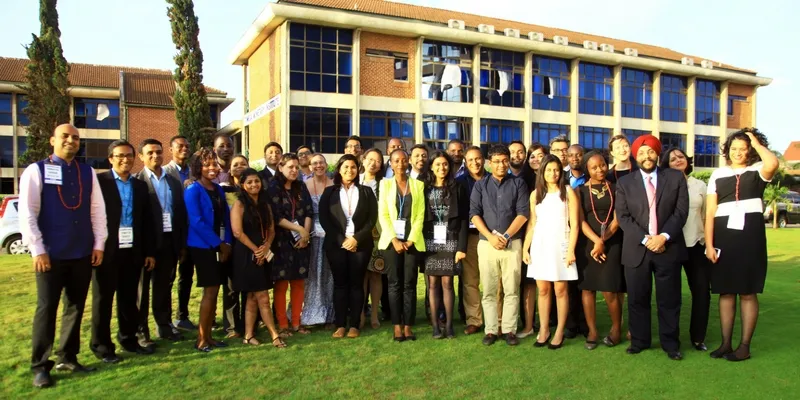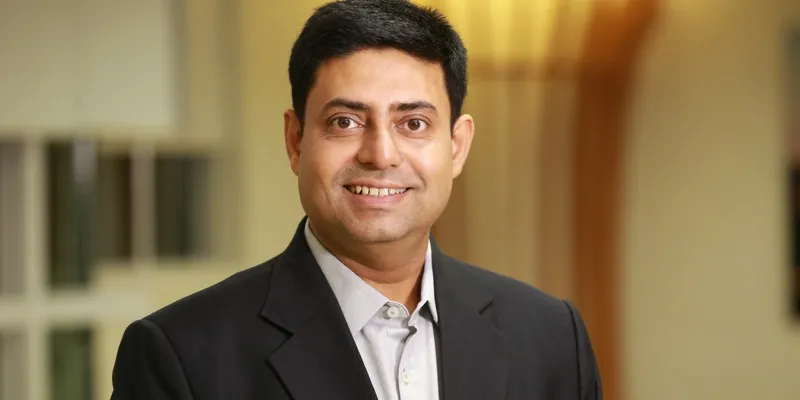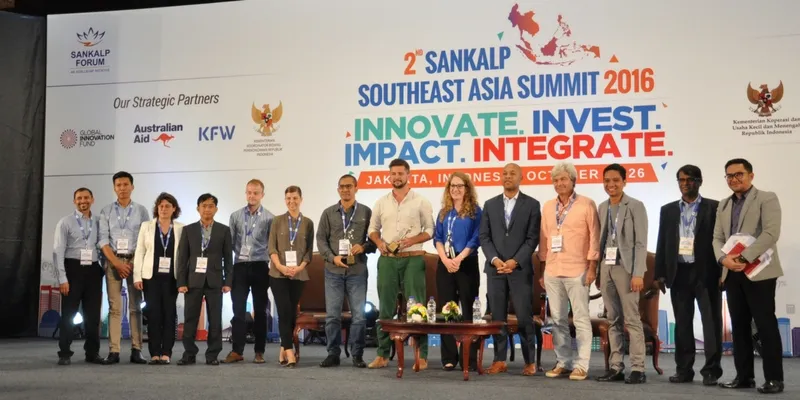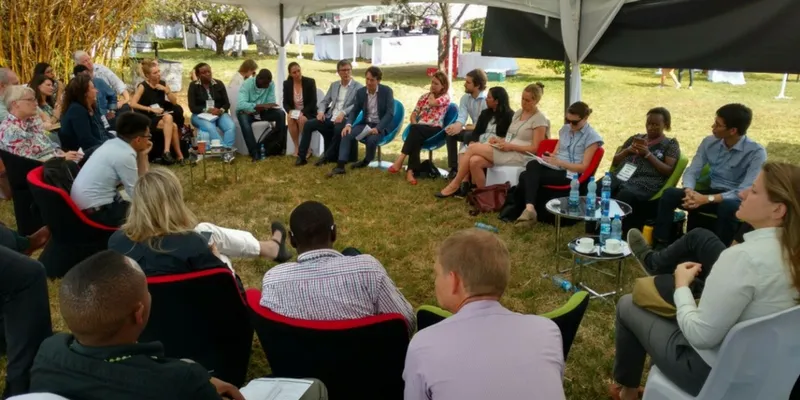1,500 entrepreneurs discovered, $220m raised; how Sankalp is building impact investment
Sankalp is a development forum that brings together policy-makers, leaders, investors and entrepreneurs to talk about ideas that can solve problems faced by people at the bottom of the income pyramid.

The forum was started in 2009 by Intellecap, a company that provides innovative business solutions for enterprises dedicated to social and environmental causes. The forum started in India and has recently expanded its presence to Africa and Indonesia.
Jubin’s Story
Jubin Mishra is the current head of the Sankalp Forum and joined the initiative in February of 2017. “There was a time when I wanted to be an entrepreneur myself but I did not succeed. I failed not because I did not have the calibre or the intent, but because there was no formal nurturing mechanism to help someone who was trying to make a living through entrepreneurship,” Jubin says.
When the opportunity came from Sankalp, Jubin knew that he could now use his skills to shape agendas, to serve the world at large, and to learn and address the needs of the underprivileged.

He also knew that one of the biggest ways in which he could aid the growth of an entrepreneur was by creating an ecosystem where the entrepreneur is at the centre of change, where knowledge is brought to him, along with capital and stakeholders.
Sankalp wants to focus its discussion on the transformation of people at the bottom of the pyramid through entrepreneurial initiative. “There are people doing work in the field of agriculture by providing micro-finance to farmers and others working in the field of health and sanitation. There are a lot of unique initiatives in this sector,” he says.
The summit
Sankalp, a summit organised by Intellecap, plans to form an ecosystem to boost social entrepreneurship by forming a stimulating environment for business-led development. Sankalp’s meetings invite audiences that include investors, VCs, multilateral organisations, startups, entrepreneurs, academicians, business leaders, and policymakers, among others.
The forum, which will see its ninth edition in India, has been working towards creating a platform where ideas regarding innovation for social impact are discussed, challenges are identified and worked upon. For 2017, the discussion will revolve around agriculture, blue economy (fisheries, aquaculture), energy, healthcare, financial healthcare and entrepreneurship led by women, among others.
Since its inception and over 15 editions, Sankalp has been able to raise over $220 million for enterprises by engaging over 2,500 stakeholders, discovering over 1,500 entrepreneurs, and attracting more than 300 investors.

Another feature of Sankalp is to build themes around issues relevant to the area where the meeting takes place. This year some of the themes across the summits include creating better access to health care, improving agricultural productivity, financial inclusion, use of exponential technologies, and improving livelihoods. Involving state leaders, impact investors, policy-makers and influencers will augment this process.
“Sankalp Forum is expected to further augment impact investment in these regions by enabling social entrepreneurs to showcase their enterprise and their innovations to potential investors which helps to direct the capital flow and investment to these enterprises,” Jubin explains. Sankalp believes that following this approach will aid inclusive growth and sustainable development and help reduce inequities in the region in the long run.
Another notable feature of the summit are the Sankalp Enterprise Awards that recognise social enterprises. This provides additional leverage for the winning enterprises to raise capital for themselves. This year will mark the fifth edition of the summit in Africa and the third in Indonesia.
Future plans of action
One of the very significant contributions of Sankalp’s ecosystem building effort is their work towards shaping the Impact Investors Council—an industry body that provides a platform to the growing impact investors community in India and strives to increase capital flow and make these enterprises scalable.
Jubin explains that he sees upcoming opportunities for all players in the social entrepreneurial ecosystem and the importance of collective effort in addressing the sustainable development goals (SDGs) effectively and in a time-bound manner. “Sustainable development goals are both an opportunity and a challenge—the opportunity to make a difference and the challenge of getting everybody on board with a oneness of purpose,” he adds.

Sankalp Forum tries to stay relevant to the needs of the ecosystem by engaging closely with the stakeholders, ensuring that their goals are relevant to the needs of the area. One of the points for its focus is to deepen Sankalp’s connection with the local ecosystem to address the needs of the entrepreneurs in these areas, by involving corporates into the discussion.
Sankalp also wants the meetings to go digital—a step that will help them to engage with stakeholders in offline and online format. “We may also look at taking the forum to mature markets like Europe and the USA, as we believe these markets are keen on fostering and supporting the growth of the social enterprise ecosystem,” he adds.
“Overall, from a vision standpoint we intend to make Sankalp the foremost global common-action and engagement platform and think-tank fostering collaboration, advocacy, dialogue, learning, and facilitating problem-solving by providing access to solutions, capital, and resources,” Jubin concludes.







